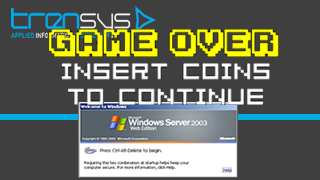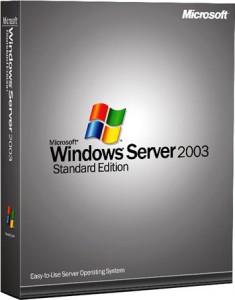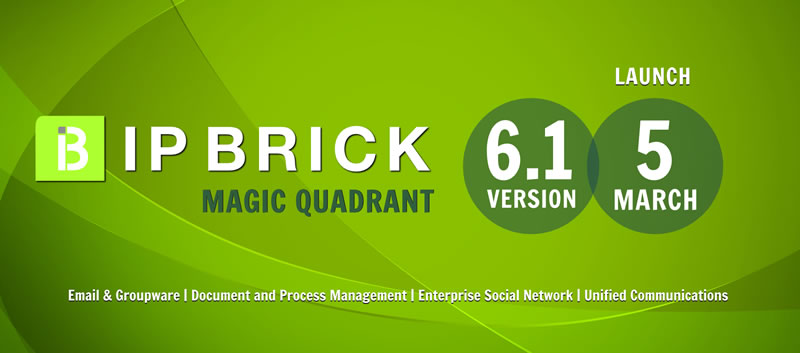Windows Server 2003, Game over

This year’s business headache may be the migrating your Windows Server 2003. With less than 5 months to go to end of life, many companies are still wondering what choices they have. This article explores 7 questions that may help you make a decision......
Windows Server 2003 – Why so Popular?
 ‘Windows Server 2003 operating systems take the best of Windows 2000 Server technology and make it easier to deploy, manage, and use. The result: a highly productive infrastructure that helps make your network a strategic asset for your organization.
‘Windows Server 2003 operating systems take the best of Windows 2000 Server technology and make it easier to deploy, manage, and use. The result: a highly productive infrastructure that helps make your network a strategic asset for your organization.
Windows Server 2003 includes all the functionality customers need today from a Windows Server operating system to do more with less, such as security, reliability, availability, and scalability. In addition, Microsoft has improved and extended the Windows server operating systems to incorporate the benefits of Microsoft .NET for connecting information, people, systems, and devices.
Windows Server 2003 SP1 provides enhanced security, increased reliability, and a simplified administration to help enterprise customers across all industries.’
http://www.easeus.com/resource/windows-2003.htm
No wonder Windows Server 2003 was so popular. A reported 11 million systems were still running Windows Server 2003 a year ago.
http://www.channelregister.co.uk/2014/05/02/windows_server_2003_hp/
Some other reports set it at as many as 24 million for both physical & virtual systems globally. And now with less than 5 months to go, other reports say that 1.6 million may miss the deadline of July 14th to migrate away from Windows Server 2003.
http://www.theregister.co.uk/2015/02/10/late_windows_server_2003_migration_now_what/
Why is that?
‘research analyst Wes Miller of Directions on Microsoft believes the installed based for Windows Server 2003 is sizable: “There are a surprising number of them [Windows Server 2003 installations] out there, in SMBs, and we’re still seeing it pretty regularly in the enterprise space.”’
‘Forrester analyst Mark Bartrick offered a concurring view: “While it’s a common occurrence to see support for older products retired by software vendors, it’s annoying if either the old stuff is still running perfectly well or if the upgrade option is financially onerous, will significantly disrupt the business or offers little in the way of real added benefit.”’
http://www.infoworld.com/article/2607968/windows-server/windows-2003–microsoft-s-next-support-sinkhole.html
And another reason……
‘”Depending on what is running on those servers, it can be a significant effort,” Vanden Boom said of replacing Server 2003.
Although Microsoft publishes support deadlines long in advance — and has been beating the drum to dump Server 2003 for months — it’s not unusual for customers to hang on too long.’
http://www.computerworld.com/article/2872316/laggards-face-looming-windows-server-2003-retirement.html
‘HP has predicted that mid-sized firms will be among the worst affected by the demise of Windows Server 2003 when all support ceases later this year.
Microsoft is bringing the end-of-life (EOL) death knell down on Windows Server 2003 on 14 July, 2015 and it will see all support including hot fixes and patches for new vulnerabilities come to a halt from that day forwards.
It’s predicted by HP that mid-sized firms will be the worst hit and Iain Stephen, HP’s VP and general manager for servers in EMEA, told V3 the number of servers that need to be updated at each firm will cause a big headache.
“The customer that worries me is the one that has 30 or more servers, probably of mixed ages, and they may have heard something about the end of life deadline, but they may not be doing anything about it,” he said.’
So what is the trend, what are others doing about it?
‘When it comes to updating the company’s software and hardware, 69 per cent of SMBs listed refreshing infrastructure as a key consideration when adopting the cloud. In terms of the type of cloud model that SMBs prefer, an impressive 75 per cent admitted to opting for a hybrid model that combines cloud services with on-premise IT.
“SMBs are clearly already favoring a hybrid approach. Our view is that 9 out of 10 companies will continue to invest in on-premise IT alongside and integrated with remote cloud solutions,” East added.’
‘The survey also found a fair amount of uncertainty about how the migration should be managed: 40 per cent of respondents had not yet decided whether they would move to the cloud as part of the upgrade.
Of the remainder, 38 per cent said they would move all or some of their applications to the cloud and 22 per cent said they would not move to the cloud at all.’
http://www.theregister.co.uk/2014/07/04/ws2003_migration/
Other reports say……
‘Presumably, Microsoft will offer expensive Custom Support Agreements for enterprises to continue getting patch support after that date, but there’s been no official announcement yet. In the meantime, new security vulnerabilities keep cropping up for the aging OS. During the last full year, 2013, Microsoft released 37 critical updates for Windows Server 2003.’
http://redmondmag.com/articles/2014/09/18/server-2003-end-of-support.aspx
Presumably indeed because it seems that companies using Windows Server 2003 are already being left in the cold. When a major bug was found it was not feasible to offer the fix to Windows Server 2003 system users.
‘On Patch Tuesday, Microsoft addressed a total of 56 vulnerabilities in its products, including a major Windows flaw, dubbed “JASBUG,” that could allow remote code execution (RCE).
In a security bulletin, MS15-011, the tech giant revealed that the critical vulnerability impacts all supported editions of Windows Server 2003, Windows Vista, Windows Server 2008, Windows 7, Windows Server 2008 R2, Windows 8, Windows Server 2012, Windows RT, Windows 8.1, Windows Server 2012 R2, and Windows RT 8.1.
“The architecture to properly support the fix provided in the update does not exist on Windows Server 2003 systems, making it infeasible to build the fix for Windows Server 2003,” Microsoft said in its bulletin. “To do so would require re-architecture a very significant amount of the Windows Server 2003 operating system, not just the affected component. The product of such a re-architecture effort would be sufficiently incompatible with Windows Server 2003 that there would be no assurance that applications designed to run on Windows Server 2003 would continue to operate on the updated system.”
http://www.scmagazine.com/microsoft-addressed-56-bugs-issues-fix-for-jasbug/article/397477/
Should I be worried?
Yes. Unfortunately, anything to do with IT systems these day are worrying. After July 14th there will be no security updates or patches. Windows had 37 critical updates alone in 2013. They are probably still counting last years’. This means that both physical & virtual servers are at risk to security threats.
Many companies still have not got round to migrating or even thinking of it for a variety of reasons. Microsoft are trying their best to help these ones by offering their cloud solutions.
http://www.microsoft.com/en-us/server-cloud/products/windows-server-2003/default.aspx
So should I just throw away my Windows Server 2003?
You are the one that knows your business well and how you prefer to work. After all, the server may have been working fine for all these years with not much problems. You may want to keep control your data and have it where you want and when you want it. You may want to keep the choice of on premises IT Systems.
A report made this interest discovery:
‘the needs of smaller businesses can be very specialised, and as such may be better served by dedicated staff in-house.
We surveyed a sample of 120 IT managers at UK firms with between five and 250 employees. Fifty-eight per cent operated from a single building, while at the other end of the scale five per cent had more than 10 premises. All sectors were represented, but as subscribers to Computing, the sample was slightly skewed towards the technical, so one might expect the respondents to be more receptive to the benefits proffered by cloud than average.
 Nevertheless, one-half of the respondents said they run all their IT in-house. Equally the sample was split pretty much down the middle between those who perceived cloud to offer particular benefits to small businesses and those that did not.’
Nevertheless, one-half of the respondents said they run all their IT in-house. Equally the sample was split pretty much down the middle between those who perceived cloud to offer particular benefits to small businesses and those that did not.’
http://www.computing.co.uk/ctg/feature/2327162/cloud-computing-no-way-say-half-of-smes
And let’s face it – nobody likes to be forced to do something they are unsure about. Not everybody wants to move to the cloud………it might rain.
Business News Daily gave 8 Reasons to Fear Cloud Computing back in October 2013. Nearly 1 ½ years later, we have to ask ourselves are those fears still viable?
http://www.businessnewsdaily.com/5215-dangers-cloud-computing.html
Maybe this is why many SMBs prefer in-house or hybrid IT Systems. Only you can answer what you prefer.
Is there an Alternative?
Yes there is and it is local to you. As part of the FSB we strive to keep business local. We can help your migration to an up to date IT system that may not involve throwing your hardware away. Where, you can keep your data in-house.
A system that brings the originality of what Windows Server 2003 was all about: It was a IT System that just let you get on with your work without too much fuss and bother. You do have a choice.
Don’t put either your server or yourself in a vulnerable position. Get the facts on what you can do about Window Server 2003 EOL now.
Call Trenchant Systems for advice on how we can help you migrate to an IT Systems that just let’s you get on with your business and even save you money.
Call us on 01536 425996/01908 888337. Quoting ‘Help with Server 2003’ today.
